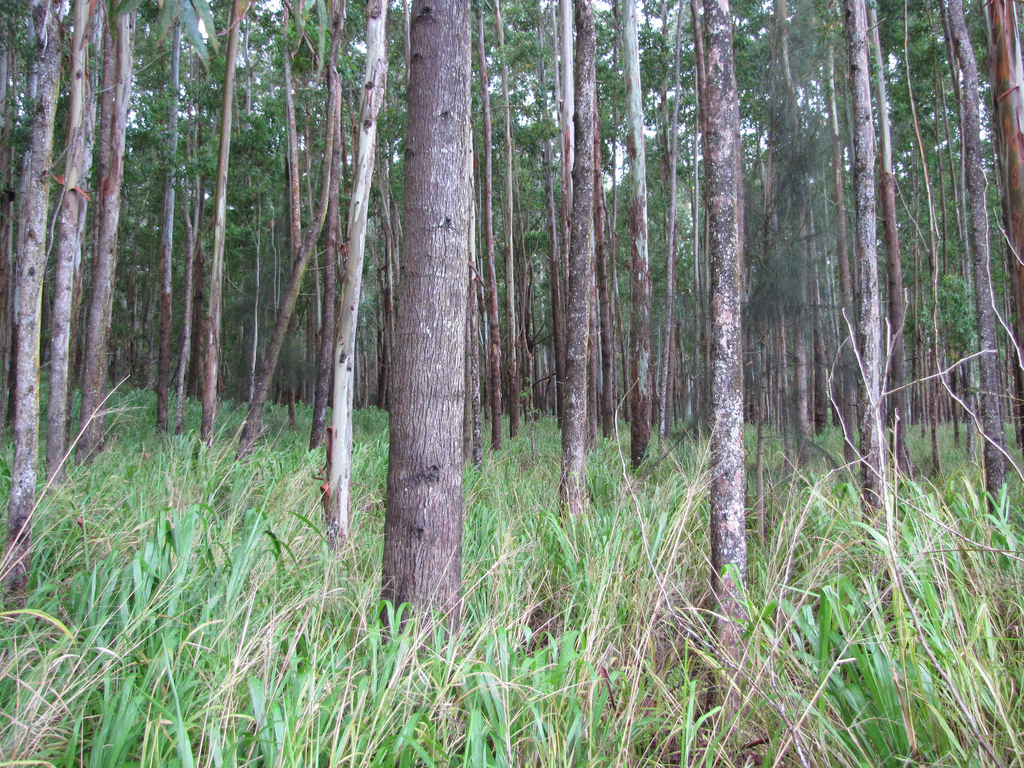We're open daily! View holiday hours
Science News
The Eucalyptus Genome
June 16, 2014
by Molly Michelson

Over one hundred years ago, Eucalyptus trees were planted around the world. Native to Australia, these trees are hardy, and able to take root almost everywhere. Planted for fuel and timber, they have today become one of the most recognized invasive species. The Academy’s chief of science and sustainability, Meg Lowman, wrote about them last winter, describing how they displace native species in Ethiopia and require a significant amount of water—a precious resource in that east African country. They are also found throughout California, disrupting or creating ecosystems, depending on which side you’re on.
But Eucalyptus’s prodigious growth habit is alluring for scientists—many seek to harness and improve upon its potential for enhancing sustainable biofuels and biomaterials production, in hopes of providing a stable year-round source of biomass that doesn’t compete with food crops. To that end, a large team of international researchers sequenced the genome of one of the 700 species of Eucalyptus—Eucalyptus grandis—and published the results last week in Nature.
Combing through the 36,000-plus genes (nearly twice as many as in the human genome), the researchers honed in on those that may influence the production of secondary cell wall material that can be processed for pulp, paper, biomaterials, and bioenergy applications.
“A major challenge for achieving a sustainable energy future is our understanding of the molecular basis of superior growth and adaptation in woody plants suitable for biomass production,” says lead author Zander Myburg of the University of Pretoria in South Africa.
“Our comparative analysis of the complex traits associated with the Eucalyptus genome and other large perennials offers new opportunities for accelerating breeding cycles for sustainable biomass productivity and optimal wood quality,” notes co-author Dario Grattapaglia of the Brazilian Agricultural Research Corporation.
The team also discovered that Eucalyptus displays the highest diversity of genes for specialized metabolites such as terpenes. These hydrocarbons serve as chemical self-defenses against pests, as well as providing the familiar aromatic essential oils used in both medicinal cough drops and for industrial processes.
“By having a library of these genes that control the synthesis of terpenes we are able to dissect which genes produce specific terpenes; then we can modify this biochemical pathway in the leaves so that we can develop the potential of Eucalyptus as an alternative source feedstock for jet fuel,” says co-author Gerald Tuskan of the Oak Ridge National Laboratory of the U.S. Department of Energy.
Sounds like big plans for Eucalyptus into the future! Capitalizing on the peculiar qualities of this invasive species could have long-lasting benefits… In the meantime, let’s just hope we can keep them in check where their presence is causing harm.